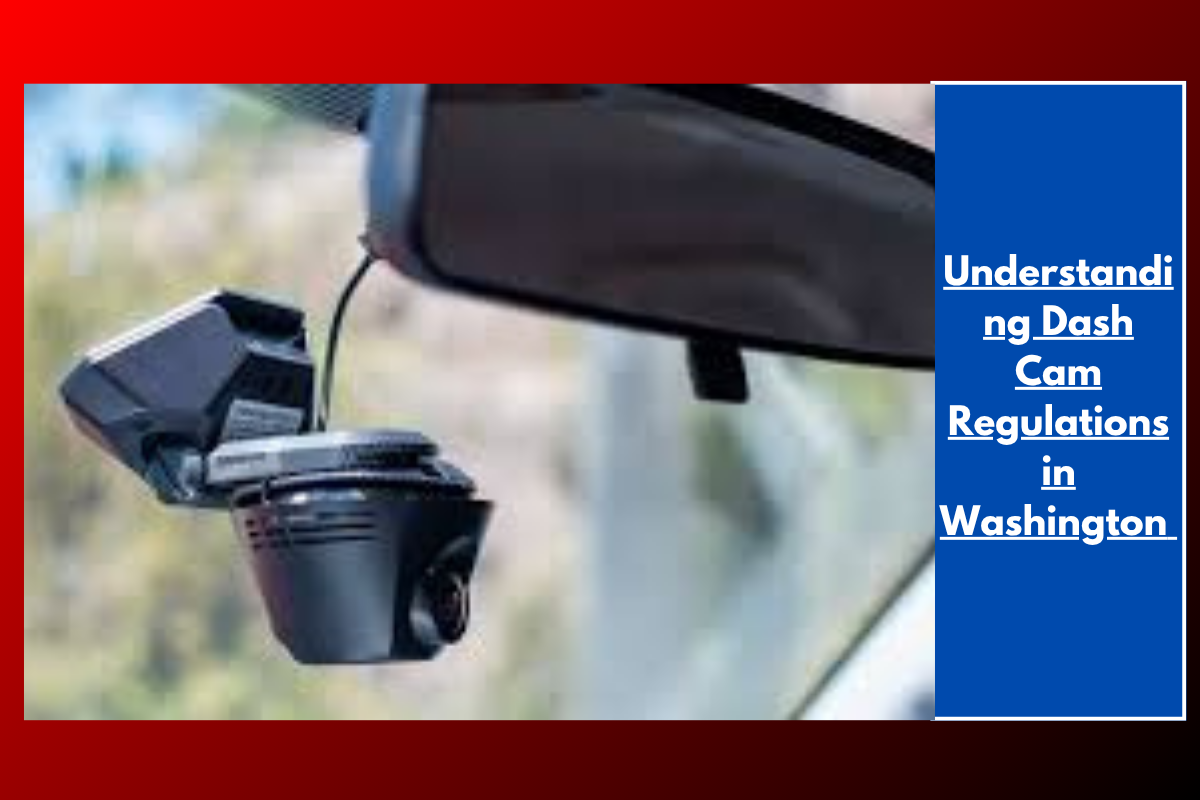Dash cams have become increasingly popular among drivers for their ability to provide crucial evidence in the event of accidents, disputes, or interactions with law enforcement. However, like any piece of technology, dash cams come with their own set of legal regulations and considerations. In Washington State, understanding the rules surrounding dash cam use is important to ensure you’re staying within the law while benefiting from this useful tool.
Are Dash Cams Legal in Washington?
Yes, dash cams are legal in Washington State. There are no state laws that explicitly prohibit the use of dash cameras. In fact, many drivers use them for security, accident documentation, and insurance purposes. Dash cams are particularly popular among rideshare drivers (like Uber and Lyft drivers) to protect themselves in case of disputes with passengers.
However, there are privacy laws and legal concerns that drivers should be aware of when using a dash cam.
Privacy Concerns and Recording Audio
In Washington, the state has strict privacy laws that govern the recording of audio. Washington is one of the few states with a two-party consent law, meaning that all parties involved in a conversation must consent to being recorded if the conversation is private. This can apply to audio recordings made by a dash cam.
If your dash cam records both video and audio, it’s essential to be cautious about recording conversations in situations where there is a reasonable expectation of privacy. This includes conversations between people in your car or between you and law enforcement officers.
Video-only recordings are generally not subject to this law, so you can record video footage of incidents in public spaces (like accidents) without needing consent from the people involved.
To stay compliant, disable the audio recording on your dash cam, especially if you’re concerned about recording private conversations. Alternatively, ensure that you only record video when driving in public spaces where there is no reasonable expectation of privacy.
Recording Interactions with Law Enforcement
One common concern for drivers using dash cams is whether it’s legal to record interactions with law enforcement officers. In Washington State, you are allowed to record police officers in public spaces as long as you’re not obstructing their work. This includes recording with your dash cam during a traffic stop.
However, there are some important things to keep in mind:
Do not interfere with the officer’s duties. If you’re using your dash cam, keep it discreet and avoid drawing attention to the recording unless necessary.
Avoid making the officer feel threatened. If you want to inform the officer that you’re recording, do so politely, but it’s not a legal requirement to notify them.
If you’re stopped by law enforcement, the video footage from your dash cam can serve as important evidence if you need to dispute any part of the interaction. For example, if you believe you were wrongly ticketed or treated unfairly, the video can provide helpful documentation of what occurred.
Placement of Dash Cams
While dash cams are legal, placement is crucial to ensure they don’t obstruct your view while driving. Washington law requires that a driver’s view through the windshield should not be obstructed by anything that could interfere with the safe operation of the vehicle. For example, you cannot place your dash cam in such a way that it blocks your view of the road or the rearview mirror.
Best placement for a dash cam is usually behind the rearview mirror, as it doesn’t obstruct the driver’s view but still captures a wide angle of the road.
Some vehicles may have built-in mounts or spaces that are specifically designed for dash cam installation, which helps ensure that the camera is positioned safely.
Using Dash Cam Footage as Evidence
Dash cams can be a valuable tool for documenting accidents or incidents. If you’re involved in a car accident in Washington, dash cam footage can be used as evidence to show who was at fault. This can be important for insurance claims or legal disputes.
However, while dash cam footage can be persuasive, it must be used correctly:
The footage must be unobstructed and clear. Poor video quality or footage that has been tampered with may not be admissible in court.
If you plan to use your dash cam footage as evidence in legal proceedings, make sure to preserve the original footage and avoid making alterations to the video files.
Dash Cam Use for Rideshare Drivers
Rideshare drivers in Washington may also use dash cams for safety and security purposes. In fact, companies like Uber and Lyft recommend installing a dash cam to help protect both drivers and passengers. However, it’s important to follow any additional rules set by the rideshare company and respect passengers’ privacy.
Summary of Key Points
Dash cams are legal in Washington, but there are privacy considerations, especially regarding audio recording.
Audio recording is subject to Washington’s two-party consent law, so avoid recording conversations unless you have consent or you’re recording video-only.
You can record interactions with law enforcement in public spaces, but don’t obstruct the officer’s work or make them feel threatened.
Ensure that your dash cam is properly mounted and doesn’t obstruct your view.
Dash cam footage can be used as evidence in accidents or disputes, but make sure the footage is clear and unaltered.
Dash cams are a valuable tool for drivers in Washington State, but they come with certain legal responsibilities. Understanding the regulations around audio recording, privacy concerns, and proper placement can help ensure that your dash cam remains a helpful asset without causing legal complications. If you’re using a dash cam for security or documentation purposes, make sure to follow the law and prioritize safety and privacy.
SOURCES
[1] https://www.nwinjurylawcenter.com/how-can-dashcam-footage-be-used-in-a-car-accident-claim/
[2] https://elsnerlawfirm.com/are-dash-cameras-legal-in-washington-state/
[3] https://app.leg.wa.gov/rcw/default.aspx?cite=46.35&full=true
[4] https://www.expertmarket.com/dash-cams/dash-cam-laws-by-state
[5] https://www.colburnlaw.com/washington-state-dash-cam-laws/














